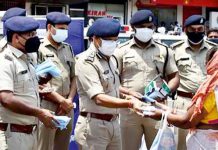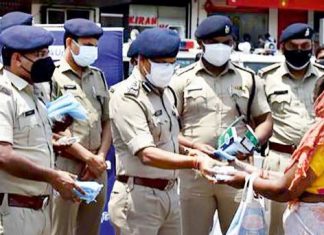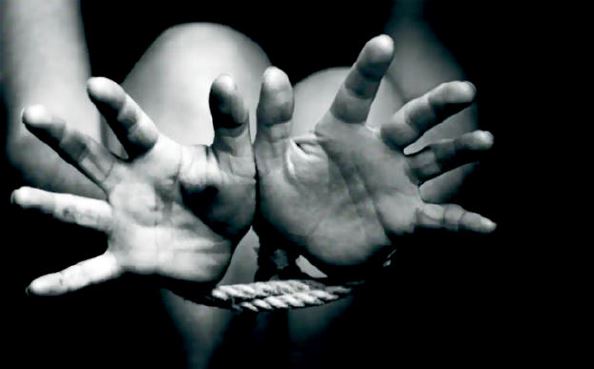
Women safety is one of the most debated issues worldwide. Crime against women is on an upward swing in several countries. Several steps have been taken for their safety where local governing bodies are educating citizens about the modus operandi of criminals. Women are easy targets most of the time. This is especially true when it comes to tackling gendered crime or, more specifically, crimes against women in many parts of the world. India, the second-most populous country in the world, has faced specific challenges in tackling gendered crime. We think India can draw on some of the innovative and replicable measures that have been implemented in other countries to enhance measures taken to better protect their female populations.
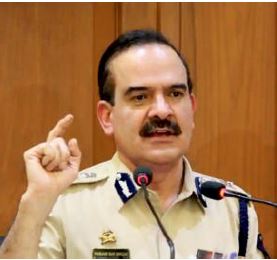 Over time, the Government of India has introduced and implemented new laws for the safety and benefit of their women populations. Maharashtra Police, known to be one of the most-efficient and highly-honoured police force in the country, has been working round the clock for the security and safety of the womenfolk. The Maharashtra Police have also increased the number of women in police and are uplifting those interested in working in its various departments.
Over time, the Government of India has introduced and implemented new laws for the safety and benefit of their women populations. Maharashtra Police, known to be one of the most-efficient and highly-honoured police force in the country, has been working round the clock for the security and safety of the womenfolk. The Maharashtra Police have also increased the number of women in police and are uplifting those interested in working in its various departments.
The State Police has been analyzing crime against women. It has started dealing with such criminals. It has launched several women safety initiatives and has departments headed by senior police officers who are specifically working on crime against women.
PAW (Prevention of Atrocities on Women) Cell:
The Home Department, Maharashtra Government, vide its G.R.No.PPA 1394/5/Pol-8, dtd.29.09.1995, established a PAW (Prevention of Atrocities on Women) Cell at the Maharashtra State Police Headquarters, Mumbai initially. The Department is presently functioning from the State CID Crime Office, Sangam Bridge, Pune. The Cell is headed by an officer of the rank of Spl. Inspector General of Police.
Mahila Police Kaksha (Women Help Desk):
 The prevention, detection and investigation of crime against women are dealt with by the jurisdictional police stations. The Director-General of Police, Maharashtra State has issued circulars to create Mahila Police Kaksha in each police station to handle cases regarding crime against women. As per availability, women police officers and police constables are appointed in these cells. 975 such cells have been established till date.
The prevention, detection and investigation of crime against women are dealt with by the jurisdictional police stations. The Director-General of Police, Maharashtra State has issued circulars to create Mahila Police Kaksha in each police station to handle cases regarding crime against women. As per availability, women police officers and police constables are appointed in these cells. 975 such cells have been established till date.
Mahila Suraksha Samiti (Women Protection Committee):
 These committees are established at the headquarters of all 45 police units as well as all police stations. They aid with legal assistance to women in crisis with the help of police intervention. These committees have as members, women doctors, women advocates, women professors and social workers, etc.
These committees are established at the headquarters of all 45 police units as well as all police stations. They aid with legal assistance to women in crisis with the help of police intervention. These committees have as members, women doctors, women advocates, women professors and social workers, etc.
Social Security Cells:
There are 33 such cells in the different police headquarters all over Maharashtra. They investigate cases related to crime against women.
Special Counseling Centres (SCC):
90 SCCs are functioning within the premises of police stations across Maharashtra. A separate office, toilet, furniture, telephone, etc., are provided to them by the Police Department. These centres coordinate with the Women and Child Welfare Department as per the directions of the Hon. High Court. They help women in crisis, especially family disputes. The Government has approved for more 54 new centres.
Help Centres at S.T. (State Transport) Stands:
To prevent immoral trafficking of women and children, 330 help centres have been established at S.T Stands as per the recommendation of the Justice Dharmadhikari Samiti.
Measures for Prevention of Female Foeticide:
A police officer of the rank of Dy SP/ACP has been appointed as a nodal officer for the effective implementation of (1) Pre-Conception and Pre-Natal Diagnostic Techniques (Prohibition of Sex Selection) Act – 1994 (PCPNDT), and (2) Medical Termination of Pregnancy Act – 1971 (MTP).
Helpline:
To help women in distress, a toll-free helpline number – 103 – has been started at the Mumbai, Thane and Navi Mumbai Police Units. The toll-free number being used for the rest of Maharashtra is 1091.
Special Juvenile Police Unit and Child Welfare Officer:
Child Welfare Committees and Juvenile Justice Boards have been formed in all districts of Maharashtra to protect and care for children in distress. All the 45 Police Units in the State have a Special Juvenile Police. A police officer is appointed as a Child Welfare Officer in each of the 1028 police stations.
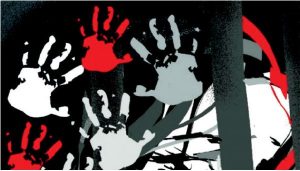 Protection of Children from Sexual Offence Act 2012:
Protection of Children from Sexual Offence Act 2012:
To register cases under this Act, training has been given to police officers and personnel. 152 training workshops have been arranged in all the police units and 1705 officers and 4548 men have been trained for effective implementation of this law.
Domestic Violence Act 2005:
This Act has come into force to protect women from domestic violence. This Act is implemented by the Protection Officers appointed by the Women and Child Welfare Department.
Special Courts and Fast Track Courts:
 Special Courts at Ahmednagar, Akola, Amaravati, Aurangabad, Buldhana, Beed, Jalgaon, Mumbai, Nagpur, Yawatmal, Thane, Pune and Kolhapur have been set up for speedy disposals of cases of crimes against women as well as immoral trafficking. 25 Fast Track Courts are being proposed for the disposal of criminal cases relating to atrocities on women and mentally-handicapped girls.
Special Courts at Ahmednagar, Akola, Amaravati, Aurangabad, Buldhana, Beed, Jalgaon, Mumbai, Nagpur, Yawatmal, Thane, Pune and Kolhapur have been set up for speedy disposals of cases of crimes against women as well as immoral trafficking. 25 Fast Track Courts are being proposed for the disposal of criminal cases relating to atrocities on women and mentally-handicapped girls.
Preventive Action for Dowry Death:
District Vigilance Cells have been formed in each district of Maharashtra via the Government of Maharashtra Resolution No.DPA-1083/80519/CA-3, Dtd. 29/1/1985. The District Collector is the President of this Cell. These Cells have as members the Superintendent of Police, social welfare officers, advocates, women medical officers, Principals of the local colleges, social workers and members of women organizations. A meeting organized by the District Collector is held every quarterly.
Complaint Committees at Workplaces:
As per the Vishakha Guidelines of the Hon. Supreme Court, New Delhi, these Committees have been set up in all 45 Police Units, Headquarters and at the State CID Office, Pune. They tackle complaints related to sexual harassment at workplaces.
Sensitising Police Officers and Men towards the Complaints of Women:
The curriculum of the basic training programme of police officers at Maharashtra Police Academy, Nashik, includes laws related to crime against women, children and gender issues.

Justice Dharmadhikari Samiti:
To prevent crime against women, the Government has formed a committee under the chairmanship of retired Justice, Shri. Chandrashekhar Dharmadhikari. This Committee submitted three interim reports to the Government. The suggestions from the first two interim reports are being implemented by the police department. Implementations on the suggestions from the third interim report are under consideration.
Anti-Human Trafficking:
For effective, prompt and speedy action to solve the various problems of Anti Human Trafficking, Maharashtra, established an Anti-Human Trafficking Cell on March 31, 2008, under the Crime Investigation Department, M.S. Pune. The Special Inspector General of Police (PAW) CID, M.S. Pune, has been nominated as a nodal officer for the State of Maharashtra.
12 Anti-Human Trafficking units have been set up in Maharashtra. These units are functioning in Mumbai, Thane City, Thane Rural, Pune, Sangli, Nagpur, Ahmednagar, Navi Mumbai, Solapur City, Beed, Kolhapur and Yavatmal. The State Nodal Officer, Maharashtra, has attached two NGOs and an officer from the Women and Child Department to each of the AHTUs so that they become a wholesome unit dedicated to the cause of Anti Human Trafficking. They have been equipped with infrastructure and are taking a lead in conducting rescue operations. Various rescue operations have been conducted. Victims have been rescued and traffickers have been arrested from the time these units have been established. Police Inspectors working in the Social Service Branch in the Commissionerate and District Crime Branch of Maharashtra Police have been notified as ‘Special Police Officers’ for Anti Human Trafficking.
Regular training workshops are being held for police officers, NGOs and prosecutors to sensitize them regarding anti-human trafficking and its seriousness and impact on society as well as to develop a victim-friendly approach and to enhance their investigative skills.
Personal Safety Every Woman Should Know
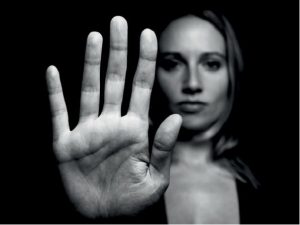 Awareness: Your first line of defence. Most people think of kicks to the groin and blocking punches when they hear the term “self-defence.” However, true self-defence begins long before any actual physical contact. The first, and probably the most important component in self-defence is awareness: awareness of yourself, your surroundings, and your potential attacker’s likely strategies. The criminal’s primary strategy is to use the advantage of surprise. Studies have shown that criminals are adept at choosing targets who appear to be unaware of what is going on around them. By being aware of your surroundings and by projecting a “force presence”, many altercations which are commonplace on the street can be avoided.
Awareness: Your first line of defence. Most people think of kicks to the groin and blocking punches when they hear the term “self-defence.” However, true self-defence begins long before any actual physical contact. The first, and probably the most important component in self-defence is awareness: awareness of yourself, your surroundings, and your potential attacker’s likely strategies. The criminal’s primary strategy is to use the advantage of surprise. Studies have shown that criminals are adept at choosing targets who appear to be unaware of what is going on around them. By being aware of your surroundings and by projecting a “force presence”, many altercations which are commonplace on the street can be avoided.
Use Your Sixth Sense. Sixth sense. Gut instinct. Whatever you call it, your intuition is a powerful subconscious insight into situations and people. All of us, especially women, have this gift, but very few of us pay attention to it. Learn to trust this power and use it to your full advantage. Avoid a person or a situation which does not feel safe.
Self-defence Training: It is important to evaluate the goals and practical usefulness of a women’s self-defence program before signing up. Here are two tips:
- Avoid martial arts studios unless you specifically wish to train in the traditional martial arts techniques and are prepared for a long-term commitment. Many women’s self-defence programs teach watered-down martial arts techniques that are complex and unrealistic under the stress of an actual attack
- The self-defence program should include simulated assaults, with a fully padded instructor in realistic rape and attack scenarios to allow you to practice what you’ve learned.
Escape: Always your best option. What if the unthinkable happens? You are suddenly confronted by a predator who demands that you go with him – be it in a car, or into an alley, or a building. It would seem prudent to obey, but you must never leave the primary crime scene. You are far more likely to be killed or seriously injured if you go with the predator than if you run away (even if he promises not to hurt you). Run away, yell for help, throw a rock on a store or car window – do whatever you can to attract attention. And if the criminal is after your purse or other material items, throw them one way while you run the other way.
Your Right to Fight: Unfortunately, no matter how diligently we practise awareness and avoidance techniques, we may find ourselves in a physical confrontation. Whether or not you have self-defence training, and no matter what your age or physical condition, it is important to understand that you CAN and SHOULD defend yourself physically. You have both the moral and legal right to do so, even if the attacker is only threatening you and has not struck first. Many women worry that they will anger the attacker and get hurt if they defend themselves, but statistics clearly show that your odds of survival are far greater if you do fight back. Aim for the eyes and then the groin. Remember, though, to use the element of surprise to your advantage – strike quickly and mean business. You may only get one chance.
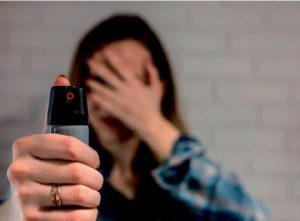 Pepper Spray: Pros and cons. Pepper spray, like other self-defence aids, can be a useful tool. However, it is important to understand that there can be significant drawbacks to its use. For example, did you know that it doesn’t work on everyone? Surprisingly, 15-20% of people will not be incapacitated even by a full-face spray. Also, if you’re carrying it in your purse, you will only waste time and alert the attacker when fumbling for it. Never depend on any self-defence tool or weapon to stop an attacker. Trust your body and your wits, which you can always depend on in the event of an attack.
Pepper Spray: Pros and cons. Pepper spray, like other self-defence aids, can be a useful tool. However, it is important to understand that there can be significant drawbacks to its use. For example, did you know that it doesn’t work on everyone? Surprisingly, 15-20% of people will not be incapacitated even by a full-face spray. Also, if you’re carrying it in your purse, you will only waste time and alert the attacker when fumbling for it. Never depend on any self-defence tool or weapon to stop an attacker. Trust your body and your wits, which you can always depend on in the event of an attack.
Home Invasions: A crime on the rise. The primary way to prevent a home invasion is simply to never, ever open your door unless you either are certain you know who’s on the other side or can verify that they have a legitimate reason for being there (dressing up as a repair person or even a police officer is one trick criminals use). If an intruder breaks in while you’re home, you should have a safe room in your house to which you can retreat. Such a room should be equipped with a strong door, deadbolt lock, phone (preferably a cell phone), and a can of pepper spray or fire extinguisher.
Avoiding a Carjacking: Lock all doors and keep the windows up when driving. Most carjacking takes place when vehicles are stopped at intersections. The criminals approach at a 45-degree angle (in the blind spot), and either pull you out of the driver’s seat or jump in the passenger’s seat.
A Travel Tip: Violent crimes against women happen in the best and worst hotels around the world. Predators may play the part of a hotel employee, push their way through an open or unlocked door, or obtain a pass key to the room. As with home safety, never open your door unless you are certain the person on the other side is legitimate, and always carry a door wedge with you when you travel. A wedge is often stronger than the door it secures.
 Safety in Cyberspace: Although the internet is educational and entertaining, it can also be full of danger if one is not careful. When communicating online, use a nickname and always keep personal information such as home address and phone numbers confidential. Instruct family members to do the same. Keep yourself updated regarding security issues, frauds, viruses, etc.
Safety in Cyberspace: Although the internet is educational and entertaining, it can also be full of danger if one is not careful. When communicating online, use a nickname and always keep personal information such as home address and phone numbers confidential. Instruct family members to do the same. Keep yourself updated regarding security issues, frauds, viruses, etc.
Our Correspondent

